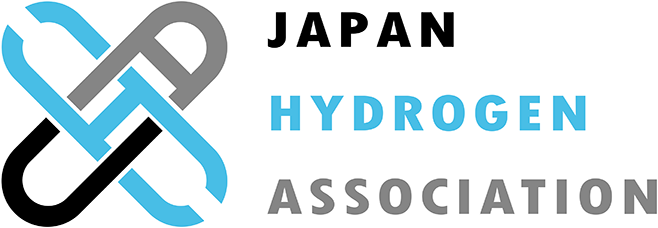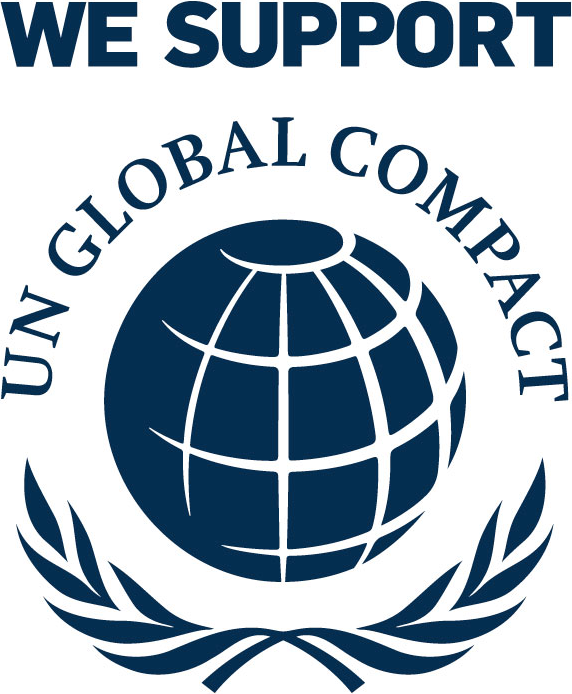Sustainability Management
Approach to Sustainability
For UACJ, sustainability is our Group philosophy. We regard sustainability activities as a core element that has a direct bearing on the very meaning of our business as a company, and we believe it is necessary for our employees, who are the main actors in these activities, to engage with a variety of stakeholders from the society the Group is a part of and undertake the activities as one, based on the principle “Passing down a Brighter World over the next century. ”
This way of thinking has been laid down as the UACJ Sustainability Policy, and we are promoting sustainability activities so that environmental and other issues facing modern society will not be left for the future, and so that our children’s generation will enjoy a better world than that of today.
To this end, we have identified issues that we must give priority to in order to grow sustainably with society as“materiality issues.”
Businesses may not be able to continue operating in the future unless they help build a more sustainable world. Recognizing the seriousness of this risk with a sense of purpose, the UACJ Group is carrying out highly effective measures designed to have a positive impact on the world.
Framework for Promoting Sustainability
UACJ has established a new framework for promoting sustainability with a view to clarifying responsibilities for sustainability activities, speeding up decision-making, and ensuring all initiatives make steady progress.
Specifically this involves designating a staff member in charge and a supervising department for each materiality issue,and ascertaining the progress of each with respect to KPIs determined in advance. Furthermore, the progress of these initiatives will be reported and deliberated on at regularly scheduled meetings for each area in order to improve the effectiveness of relevant measures.
In April 2023, we established a new Corporate Sustainability Division. With this new division taking the lead, we will continue striving to create new business models and deliver value to customers rooted in the resolution of issues the world is facing.
Materiality Promotion Structure (Organization and Meeting Groups)
| Materiality Issues | Officers in Charge | Organization in Charge | KPI Monitoring (Reporting Body) | |
|---|---|---|---|---|
| Committee | Frequency | |||
| Leading a Circular Economy in Aluminum | Executive Officer in charge of Climate Change Countermeasures | Climate Change Task Force Department Safety & Environment Department |
Environmental Committee | Three times annually (June, October, February) |
| Measures to address Climate Change | ||||
| Supporting Environmental Health and Nature (Nature Positive) | ||||
| Respecting Human Rights | Chief Executive of the Business Support Division | Corporate Legal Department | Compliance Committee | Once annually (March) |
| Promoting Dei-ay | Chief Executive of the Corporate Sustainability Division Chief Executive of the Business Support Division |
Diversity Promotion Department Human Resources Department |
Human Resources Committee | Twice annually (July, November) |
Acquisition of ASI certifications
At UACJ, we participate in a variety of external initiatives that align with our Sustainability Policy. Specific examples include signing the United Nations Global Compact and obtaining evaluations from CDP*1 and EcoVadis*2 . Through these activities, we are working to improve the sustainability of our business and the materials we supply, and we continue to make efforts to demonstrate these efforts to society with a high level of transparency and objectivity.
The ASI*3 certifications we obtained in 2022 represents one result of these activities. The ASI is an international initiative aimed at improving sustainability efforts throughout the aluminum supply chain and maximizing contributions to society from an ESG perspective. As of July 2024, more than 360 companies and organizations are members of ASI, including the International Aluminum Institute (IAI), aluminum producers, processors, end users, and others involved with aluminum in various capacities. ASI is responsible for the development of global standards for sustainability performance in the aluminum industry, traceability of production, processing, and distribution processes, as well as the review and approval thereof.
Keeping a close eye on global customers and trends in the aluminum sector, we became Japan’s first flat-rolled aluminum manufacturer to join ASI in July 2020. Furthermore, in 2022, we obtained two ASI certifications (Performance Standard: PS*4 and Chain of Custody Standard: CoC*5 ) at our Fukui Works, which supplies products globally, and our Rayong Works at UATH*6 . Obtaining ASI certification entails significant costs, such as dealing with audits in the manufacturing and administrative departments, the increased burden of the wide-ranging information disclosure required, and higher procurement costs. However, as a major player in the global aluminum market, we recognized the importance of participating in the development of industry sustainability standards and were quick to decide to join and obtain certification.
In the near future, ASI certification is expected to become a requirement for doing business in the industry. Through this certification, we are able to offer our customers around the world reliable materials with a controlled supply chain, as a company worthy of trust in all aspects of ESG. In fact, as we enter the year 2024, major European beverage can manufacturers and others are increasingly specifying ASI certification as a basic condition of doing business. The trend toward placing greater importance on ASI certification is expected to expand to regions such as North America and Asia, and to other applications such as automotive parts and materials for consumer electronics. We believe that our strength lies in our ability to supply a wide variety of products globally, and ASI certification will add an additional element of differentiation in terms of sustainability to this competitive edge. In addition to the product supply perspective discussed here, we will also improve corporate value by raising our standards for sustainability through ASI certification activities.
- *1 An international non-profit organization that uses scores to evaluate companies’ efforts to address environmental issues
- *2 An international organization that evaluates companies and their supply chains on the basis of four sustainability topics
- *3 Aluminium Stewardship Initiative
- *4 Standards for improving sustainability and transparency with regard to corporate governance, the environment, and social responsibility
- *5 Standards for sustainable development extending to processing and distribution processes
- *6 UACJ (Thailand) Co., Ltd.


Significance of ASI membership for UACJ

Utilizing Green Finance
Green finance refers to investment and lending that provides financial support to businesses and local governments that are tackling environmental issues with, for example, climate change countermeasures, waste reduction, and biodiversity conservation.
With its corporate philosophy of "Contribute to a prosperous and sustainable society with technologies that bring out the innate power of Materials,” UACJ seeks to help reduce environmental impacts globally through aluminum. In our long-term roadmap, UACJ Vision 2030, our aim is also "Aluminum is our passion. It inspires our work in building a better world and a healthier environment." and we position sustainability activities as a core element that will determine the raison d'être of our corporate management. In particular, we place importance on creating a circular economy in terms of increasing our corporate value. Because aluminum has a large environmental impact from GHG emissions and pollutants when used as new metal, promoting the circulation of aluminum (closed-loop recycling) contributes to addressing climate change and preserving, regenerating, and creating nature (nature positive). In other words, since the value created by recycling aluminum is significant, we have positioned promotion of recycling as the most important growth and added value strategy in our fourth mid-term management plan. Under this vision and strategy, we have raised funds using green finance to further promote measures to increase our corporate value. For details on our green finance framework, please refer to the UACJ Corporation Green Finance Framework assessment report by Japan Credit Rating Agency, Ltd.External Recognition
Overview of Green Finance
First Green Loan
| Execution date | January 31, 2025 |
|---|---|
| Borrowing format | Syndicated loan |
| Arranger and agent | Sumitomo Mitsui Trust Bank, Limited |
| Amount | 4.0 billion yen |
| Use of Proceeds (Green Project) | Equipment for the separation and melting of used beverage cans (UBC) and the building required to house them. |
The lender has determined that this loan (project) is an investment that will contribute to Japan's response to climate change, and plans to receive funding from the Bank of Japan's Funds-Supplying Operations to Support Financing for Climate Change Responses” ("green operations”).
Second Green Loan
| Contract date | March 26, 2025 |
|---|---|
| Borrowing format | Syndicated loan |
| Arrangers | Sumitomo Mitsui Banking Corporation and Mizuho Bank, Ltd. |
| Amount | 6.0 billion yen |
| Use of Proceeds (Green Project) | Equipment for the separation and melting of used beverage cans (UBC) and the building required to house them. |
Responsibilities to and Methods for Communicating with Principal Stakeholders
| Key Responsibilities | Communication Methods | |
|---|---|---|
| Customers |
Maintain and improve the quality of products and services Provide products and services that are good for society Use a wide variety of technologies and expertise to solve customers’ problems |
Dialogue in daily business dealings Website Dialogue through technology exhibits Customer satisfaction surveys |
| Suppliers |
Build sound relationships through fair transactions respecting laws and ordinances Fulfill CSRs throughout the supply chain |
Dialogue in daily business dealings |
| Environment |
Reduce greenhouse gas emissions Promote energy efficiency and recycling Protect biodiversity Reduce industrial waste Manage and reduce harmful chemical substances |
Operate within laws and regulations Support the Kyoto Protocol on fighting global warming, the Nagoya Protocol on biodiversity, and other international agreements Support environmental activities advanced by Japan’s Ministry of the Environment and others |
| Investors |
Provide appropriate returns Make timely and appropriate disclosures Increase corporate value |
General meeting of shareholders Shareholder communications Results briefings Telephone conferences One-on-one meetings Shareholder plant tours Website |
| Employees |
Respect human rights Develop personnel, and provide fair evaluations and compensation Protect worker safety and health (including mental health) Support diverse working styles, and employee efforts to meet work and personal responsibilities |
Company Newsletter Intranet |
| Local Communities |
Support sports and cultural activities, and efforts to nurture future generations Participate in and support traditional events Support and work with local and other NPOs |
Plant tours Local events Neighborhood clean-up and other social contribution activities by employees |
Third-party Assessments
CDP2023 Received B ratings in the Climate Change and Water Security categories
In February 2024, UACJ received a B rating in both the Climate Change and Water Security categories in the CDP 2023 survey conducted by the environmental disclosure initiative Carbon Disclosure Project (CDP).
We believe the rating recognizes our efforts to enhance the disclosure of information related to climate change and other areas, which we have set as a materiality issue for our Group.
We consider the B rating as a management level assessment.
About CDP
CDP is a global non-profit that runs the world's environmental disclosure system for companies, cities, states and regions. Founded in 2000 and working with more than 740 financial institutions with over $137 trillion in assets, CDP pioneered using capital markets and corporate procurement to motivate companies to disclose their environmental impacts, and to reduce greenhouse gas emissions, safeguard water resources and protect forests. Over 25,000 organizations around the world disclosed data through CDP in 2023, with more than 23,000 companies – including listed companies worth two thirds global market capitalization - and over 1,100 cities, states and regions. Fully TCFD aligned, CDP holds the largest environmental database in the world, and CDP scores are widely used to drive investment and procurement decisions towards a zero carbon, sustainable and resilient economy. CDP is a founding member of the Science Based Targets initiative, We Mean Business Coalition, The Investor Agenda and the Net Zero Asset Managers initiative.

Selected as a Sompo Sustainability Index constituent for the second straight year
UACJ was selected as a constituent of the 2024 SOMPO Sustainability Index instituted by SOMPO Asset Management. Created in 2012, the index consists of approximately 300 companies with outstanding ESG practices selected each year for inclusion in the company’s annual Sustainable Management Gund. The Sustainable Management Fund is an investment product focused on ESG themes. In recognition of UACJ’s ESG initiatives, the fund has selected the company for inclusion each year since 2022.

“AA” MSCI ESG Rating for Second Straight Year
MSCI Inc. of the United States gave UACJ an AA rating in its MSCI ESG Ratings assessments 2023 and 2024 and includes the Company in the MSCI Japan ESG Select Leaders Index.

Participation in External Initiatives
Participation in the Japan Hydrogen Association (JH2A)
On March 4, 2021, UACJ joined the Japan Hydrogen Association, which is dedicated to furthering global cooperation in the field of hydrogen and advancing the formation of a hydrogen supply chain.
We anticipate that aluminum materials made by UACJ will be used for distribution and storage in the hydrogen value chain and, therefore, decided to participate in the JH2A and support its aim of promoting the construction of one of the world’s first hydrogen societies. UACJ will contribute to this goal by working with other member companies to provide high-quality aluminum materials.

Endorsement of the United Nations Global Compact
In April 2021, UACJ became a signatory to the United Nations Global Compact (UNGC), an international initiative for realizing sustainable growth in international society.
Kofi Annan, UN Secretary-General at the time, advocated for the UNGC at the 1999 World Economic Forum (the Davos Forum) and it was formally implemented by the UN Headquarters in July 2000. Since then, it has been endorsed by 160 countries and over 12,000 companies and other organizations. The latter must agree to ten human rights, labor, environment, and anti-corruption principles and implement initiatives aimed at promoting improvement in these areas.
As a comprehensive aluminum manufacturer pursuing business globally, UACJ will contribute to greater sustainability for society.

Support of the Task Force on Climate-related Financial Disclosures
In September 2021, UACJ announced its endorsement of recommendations by the Task Force on Climate-related Financial Disclosures (TFCD) and joined the TFCD Consortium. Based on the TFCD recommendations, UACJ will proactively advance information disclosure on climate-change-related risks and opportunities for its businesses from four perspectives: governance, strategy, risk management, and metrics and targets.

The 30by30 Alliance for Biodiversity
The 30by30 initiative is a commitment of G7 countries to effectively conserve more than 30% of land and ocean areas as healthy ecosystems with the goal of halting and reversing biodiversity loss by 2030. UACJ supports this mission and participates in the 30by30 Alliance for Biodiversity established by the Japanese Ministry of the Environment.

Participation in the GX League
UACJ joined the GX League in fiscal 2024. On March 27, 2024, the Ministry of Economy, Trade and Industry (METI) announced the 2024 list of participants in its GX League green transformation program, which increased by 179 new members to a total of 747.

METI website “From FY2024, 179 Companies Newly Participate in the GX League, Bringing the Total Number of Participants to 747”![]() GX League Official Website
GX League Official Website![]()
Participation in Circular Partners
UACJ has joined Circular Partners, an industry-government-academia partnership created by METI to advance development of a circular economy. As a partner, we will increase cooperation with other members to help establish a circular economy in Japan.


